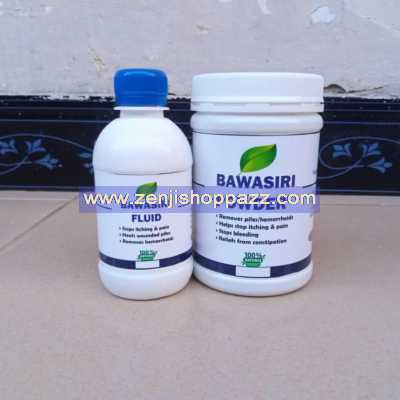Nafasi ya Kazi Environmental Impact Assessment
General Description
Source: https://iesc.org/
Release date: 2023-03-06

Position Description
Environmental Impact Assessment
Location Tanzania
Department Programs
Employment Type Volunteer APPLY NOW
Th e environment, until recently, has been considered by many as an unlimited resource with zero cost . Today, there is greater understanding about the earth’s limited and precious resource s, and human’s responsibility in improving the management of Earth’s ecosystems to ensure their conservation and sustainable use. Intact, functioning ecosystems provide services on which poor communities rely disproportionately for their wellbeing and basic needs. These communities also depend on the environment to earn incomes in sectors such as agriculture, fishing, forestry, and tourism, through both formal and informal markets.
Livelihoods can be sustainable or not, depending on the way the environment is managed. T he environment also has a significant impact on the agriculture sector worldwide , as it provides the basis for food and agricultural systems.
However, the way agriculture is approached can have positive or negative impacts on the environment. Nowadays, the food industry is regarded as very efficient, and consumers can access a variety of fresh and processed foods of high quality . While technological approaches in food manufacturing have offered new markets and opportunities, they must also respond to changing environmental concerns . E ach step in the food industry system - food production, processing, transportation, storage, distribution, and marketing operations , create wastes of different quality and quantity, which, if not treated and well managed , could lead to increasing disposal problems and severe pollution problems to environment. This realization has underlined the need for effective research to minimize the impact of technologies and processing methods on the environment.
One private food processing company in Tanzania , that sources its raw materials from its network of 13,185 smallholder farmers (of which 65% are youth) to strengthen local production capacities in cereal and legume farming and improve livelihood of smallholder's families has expanded its business into rice and fortified maize flour processin g f or Tanzanian and East Africa region al consumers . Nevertheless, because of environment al concerns and the nature of the food processing business , t he company needs to conduct extensive research to understand the general characteristics of byproducts, wastes and effluents from different categories of the food processing stages and their impact on the environment to help design and develop strategies to reduce and avoid waste and institute appropriate methods for waste treatment and disposal to minimize environmental problems.
Therefore, the Farmer-to-Farmer (F2F) Access to Finance Program is recruiting two volunteer experts — a U.S. citizen or permanent resident who will provide remote support and technical input and a Tanzanian or neighboring country citizen or permanent resident who will implement the assignment in-country . Together, the two will support the food processing company to conduct a full environmental Impact A ssessment (EIA) according to the requirement of the Tanzania Environment Management Act - CAP 191 and subsequent EIA and Audit Regulation 2005 particularly regulation number 51 and 52. T he successful completion of the EIA study will help the food processing company to have full understanding of general characteristics of prospective byproducts , wastes and effluents and their impact on environment that will ultimately help the company to develop and institute strategies and methods to reduce and avoid waste and establish appropriate ways for waste management to minimize environmental pollution .
Objectives of the Assignment:
1. Support the host organization to develop land use plan of the food processing site.
2. Support the host organization to collect and tabulate data of various parameters including air quality and noise level at the food processing site.
3. Assess the compliance status of all applicable legal and policy frameworks and their respective requirements.
4. Support the food processing company to develop a clear description of how both sold and liquid waste are managed.
5. Recommend appropriate actions that should be taken by the food processing company to further comply to all applicable Tanzania legal and policy frameworks
Tasks to be Performed:
Pre-Assignment:
- Review the host profile and previous volunteer technical report to the food processing company
- Review the Tanzania Environment Management Act -CAP 191 and subsequent EIA and Audit Regulation 2005 particularly regulation number 51 and 52
- Review host organization business plan, sales agreements, financial statements, and marketing strategies to understand host organization business operations.
- Hold a call with the F2F Tanzania Country Director and host organization to discuss the needs of assignment and strategy as well as assignment plan.
- Prepare a list of questions that regulators would ask if they were to do the audit
During Assignment:
- Attend orientation hosted by F2F staff .
- Hold kickoff meeting with host organization to review and finalize assignment objectives and plan .
- P resent Prepared list of questions that regulators would ask, and requests for additional questions and materials needed
- Conduct factory tour of the food processing facilities and sites
- Work and support the host organization to develop a land use plan for the food processing site.
- In corroboration with the food processing company staff collect and tabulate data of various parameters including air quality and noise level at the food processing site.
- Conduct an assessment to determine the food processing compliance status to all applicable legal and policy frameworks and their respective requirements.
- Analyze the findings from the assessment and present the assessment report to the food processing company management and F2F team.
- In corroboration with the food processing company staff develop a clear description of how both sold and liquid waste are managed at the food processing site .
- Where possible, support the closing and/or suggest how to close the identified gaps
- Develop a PowerPoint presentation describing the assignment, findings, recommendations and expected impacts
- Hold debriefing meetings with the Food processing company management.
- Attend briefing with USAID Tanzania mission.
- Hold debriefing with F2F team.
- Draft final report for assignment.
End of Assignment Report and Other Deliverables Required :
- Volunteer Trip Report
- Comprehensive EIA report
- Power Point presentation describing the assignment, findings, recommendations and expected impacts
Expertise of Volunteer Experts Requested:
Higher university degree in Environment Science, Environmental Engineering, Agriculture engineering, Air resources, aquatic biology, atmospheric sciences, or other related field of study
8+ years of relevant experience in Environment conservation and management, solid and liquid waste management .
Demonstrated ability to work with SMEs i n conduct Environmental Impact Assessment for their projects in developing countries preferably Sub-Saharan Africa , NEMC registration will be an added advantage
Independent and strong interpersonal skill s
Creativity, critical thinking, and problem-solving skills
Goal-oriented mindset and hands-on approach
Good written and verbal communication skills
Knowledge of and experience with food processing sector and environmental conservations preferred.
Strong leadership and communication skills and capacity to plan strategically and flexibly.
Sufficiently physically fit, with appropriate medical clearance.
Experience working in Tanzania and/or the region is preferred.
Writing Skills: reporting requires good computer skills including, but not limited to, working and generating reports with MS Word. Experience with PowerPoint presentations is desirable.
This is a United States government funded program. Therefore, for the purpose of achieving desired results in accordance with the work plan and submitting requisite reports, written and spoken fluency in English is required. Ability to work through translators in the field, however, is essential. This requires deliberation and sensitivity to cultural issues would be an added advantage.
Volunteer Outreach:
USAID and IESC encourages all F2F volunteers to participate in public outreach. An important objective of the program is to increase awareness of Americans’ good work in developing countries. Volunteers should select at least one outreach activity from the list below, to be completed within two months of return to the US:
? Write an entry for the IESC blog.
? Post a photo, video, or text related to the F2F assignment on a personal website, blog, Facebook page, Twitter, or other social media site. –And send a link to IESC staff.
? Send a press release to local newspaper(s) in the volunteer’s hometown . (IESC can provide a template).
? Write something for an alumni or professional association newsletter, or other publication. (IESC can help as needed).
? Give a presentation about the F2F assignment to colleagues, students, church group, rotary club, etc.
? Send an email about F2F to friends, family, or colleagues.
? Other .
Description of the Program:
IESC serves as the lead implementer for the Farmer-to-Farmer (F2F) Access to Finance Program (2018-2023) to address deficits in the financial ecosystem hindering investment and growth in agriculture for individual farmers, as well as micro, small, and medium sized enterprises through delivery of volunteer technical assistance. IESC has designed a thematic F2F program to generate sustainable, broad-based economic growth and create jobs in the agricultural sector with a special focus on assistance to women and youth.
Funded by the U.S. Agency for International Development, F2F initiatives generate rapid, sustained, and broad-based economic growth in the agricultural sector. These programs also promote international goodwill, understanding of U.S. foreign assistance programs, and private involvement in development activities. Through the F2F Program, USAID facilitates delivery of a broad range of U.S. agricultural expertise using U.S. volunteers who work with farmers, agricultural support systems and associations, and agribusinesses, in developing countries. The work of volunteers helps improve the quality of the agricultural sector workforce through training and advisory services provided to a wide range of agriculture sector actors. Volunteer assignments are designed to improve farm and agribusiness operations and agricultural systems.
Focusing on Kenya, Tanzania, and Sri Lanka, the F2F Access to Finance Program will work with local partner organizations and volunteer hosts to field pro bono experts from the U.S. agriculture, corporate, and banking sectors to address systemic capacity constraints for farmers and lenders in each targeted country and unlock finance for improved agricultural production leading to utilization of agricultural technologies and increased sales and incomes.
Promoted Ads
Other products





 Download our app on Google Play
Download our app on Google Play








